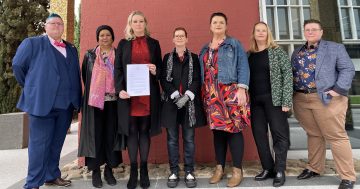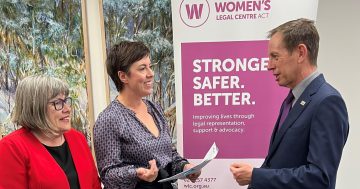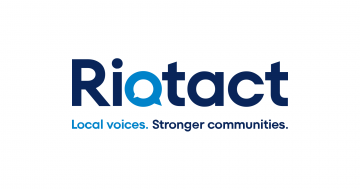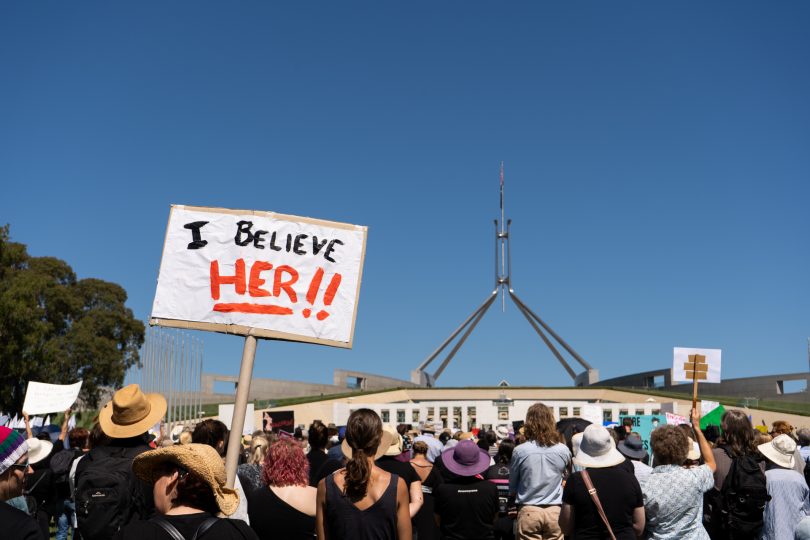
There has been a reinvigorated push to improve sexual assault response services in the ACT. Photo: Dominic Giannini.
Nine out of 10 survivors of sexual assault do not want to involve the police after the incident occurs.
For some, like Brittanny Higgins, whose story has created a national movement, it takes days to reconcile what has happened.
But if a victim-survivor wants to take action down the track, forensic evidence needs to be collected immediately for a fair chance of a conviction.
Survivors have to give consent for samples to be taken, which means if a person who has just experienced a sexual assault has alcohol in their system, they may be forced to wait several hours or longer before anything can occur.
During this time they cannot eat, change their clothes or wash – potentially adding to the trauma.
It is where best practice is imperative, Shadow Health Minister Giulia Jones said.
“We need to get to a position where (everything) has been carefully and proactively considered and we are confident we have done all in our power to get this evidence preserved for the empowerment of survivors,” she said.
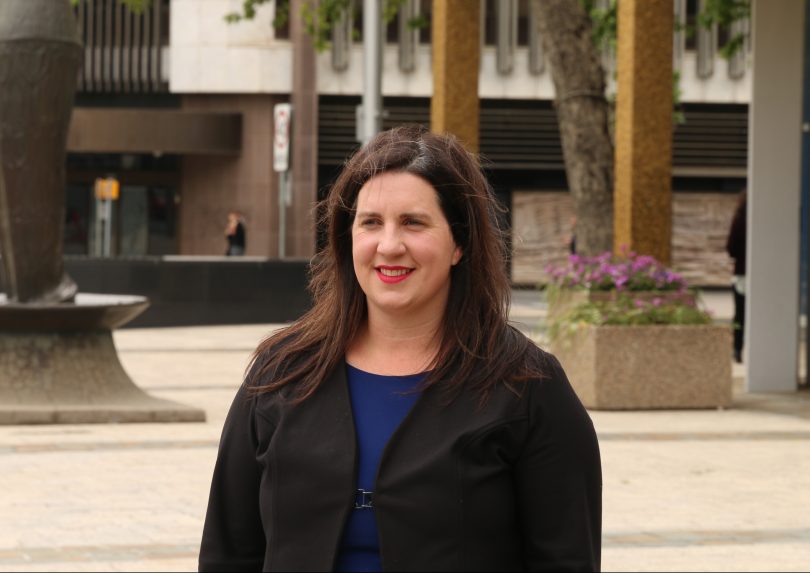
Shadow Health Minister Giulia Jones wants to increase support for sexual assault survivors. Photo: Dominic Giannini.
The Forensic and Medical Sexual Assault Care Service (FAMSAC) at the Canberra Hospital is best equipped to take forensic samples.
The Canberra Rape Crisis Centre (CRCC) used to have a 24-hour crisis line but this has since been reduced to between 7:00 am and 11:00 pm.
While there is currently a 24-hour ‘call out’ line survivors can use to access forensics, police and the CRCC, outside of this time those seeking help will only have support if they present to a hospital or contact the police first.
CRCC CEO Chrystina Stanford said this reduces the options currently available to survivors.
“It makes them choose one or the other before having the chance to talk to someone for support prior to making the decision to report to police or attend the hospital,” she said.
After attending the Women’s March 4 Justice last month with her Legislative Assembly colleagues, Ms Jones moved a motion last week calling for more work to be done to help someone who has just experienced a sexual assault in the ACT.
The motion called on the government to ensure that a 24-hour forensic service was easily accessible to all Canberrans and to consider staffing arrangements to ensure that CRCC and Victim Support ACT support workers are available to counsel victims of sexual assault through this process.
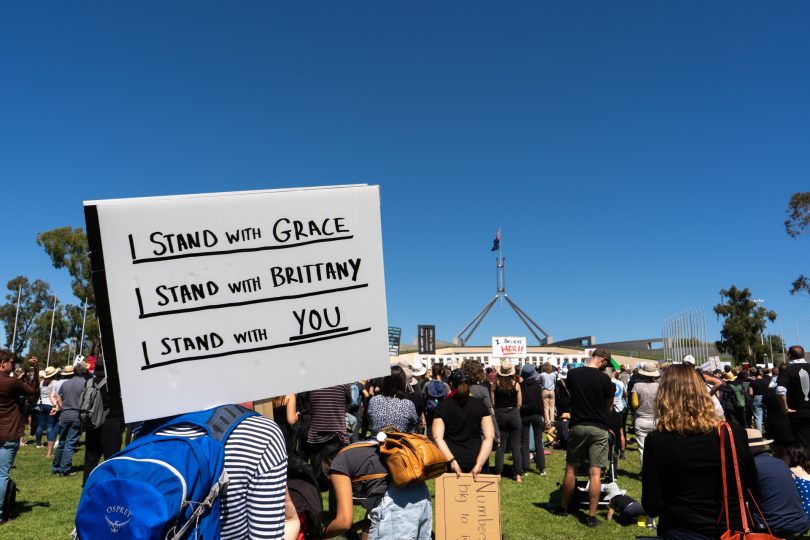
Thousands of people rallied in front of Parliament House for the March 4 Justice. Photo: Dominic Giannini.
It also called on the government to investigate whether the FAMSAC service could become mobile and attend a private residence or other public places.
Ms Stanford said a mobile service for forensic collections is not ideal due to the particular collection requirements and storage for it to be used in court, but that mobile support options could be put in place for CRCC staff.
There is currently only one staff member who is able to go on call outs, and they need to attend with a police officer due to safety concerns. A second staff member would mean the team could do a call out without involving the police.
READ ALSO: She escaped with her life, he escaped with a suspended sentence: call for DV sentencing reform
She also said there needed to be more information available to tell people where to go if they, or someone they know, experience a sexual assault.
“Let’s do everything in our power to get this information out into the mainstream community so that it is known that a rapid response after a sexual assault is absolutely vital,” she said.
“Every friend, every flatmate, every manager, everyone who might be a bystander to the time immediately after an assault.
“Justice must be served and it is our role to ensure that every person who puts their hand up and says they have experienced sexual violence is taken seriously and given the very best care we can organise.”
If you are unsure about what to do or do not want to go to hospital by yourself or want help from someone other than a friend or family member, please call the Canberra Rape Crisis Centre on 6247 2525.
If this story has raised any issues for you, you can call 1800 Respect on 1800 737 732 or Lifeline on 13 11 14.












